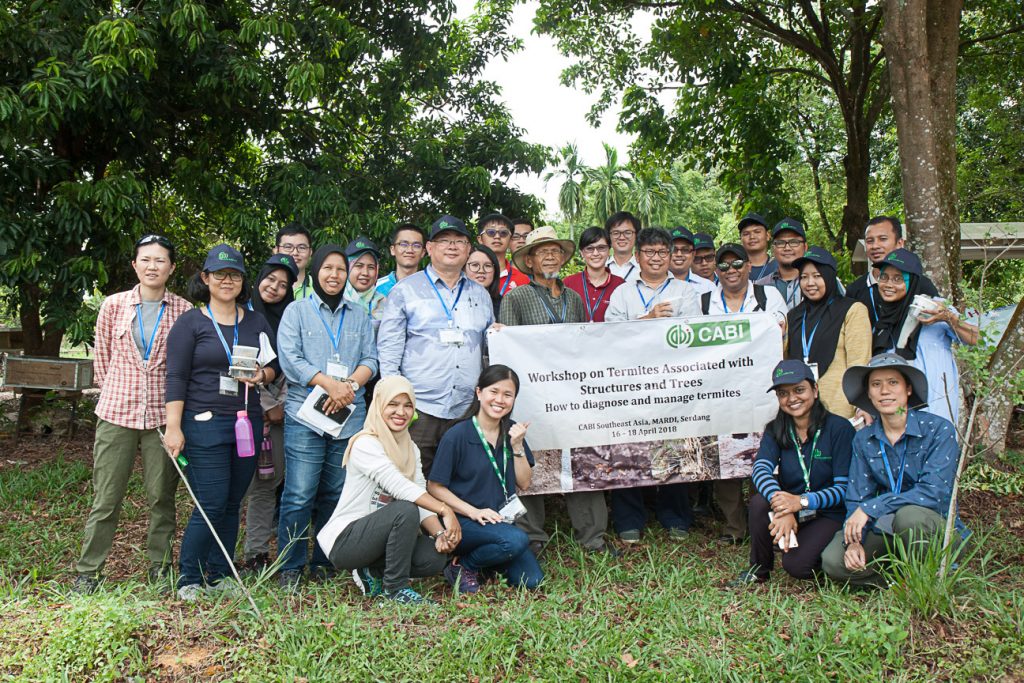It must be Halal, right?
The world Halal food market is valued at $700 billion. Pakistan only contributes $28 million, less than 0.5%, to this market despite having the second largest Islamic population in the world. In Pakistan, although roughly 97% of the population follows Islam, there is not a single Halal certified food chain in the country. A recent…
A conversation on ‘Communicating Evidence for Sustainable Development’
Last month two CABI employees, Solveig Danielsen and Paul Day, attended a conference at Wageningen University on Communicating Evidence for Sustainable Development. Sol works in the Monitoring and Evaluation team (M&E) and Paul is a communicator. The conference led to a lively conversation which we captured here.
How can we ensure safety in Events Management, Religious Festivals, and Tourism?
By Maximiliano Korstanje One of the aspects that motivated me to write a book which focuses on Event Management Security as the main object of study was the need to understand what we, the experts in terrorism and political violence, can do in order for tourist destinations to be protected. Although some sociologists have claimed…
Phytosanitary Risk Management Programme – transforming livelihoods in Pakistan
Meet Rozina Babar, she is one of thousands of smallholder farmers in Pakistan whose livelihoods are threatened by agricultural pests and diseases that can devastate crops and ultimately have a severe impact on food security and profitability. However, thanks to the CABI-led Phytosanitary Risk Management Programme – funded by USAID-USDA and working with partners including…
Showcasing smart agriculture in comic exhibition
Comics have long played a role in entertaining young people, and even adults, going right back to the Golden Age of Comic books in the 1930s. One only has to think of Superman, Batman, Wonder Woman, Captain Marvel and many more. But you would be forgiven for being surprised at knowing that comics can also…
Cotton harvest picture special
The power of the image paints a picture that speaks a thousand words and that is certainly the case with these fantastic images taken by photographer Asim Hafeez. Asim was commissioned by CABI to document the process of harvesting cotton in Pakistan – the country’s largest industrial sector – where more than 500,000 farmers…
Termite workshop photo special – exploring tree-damaging termites in the tropics
CABI scientists have held a successful three-day workshop exploring how to diagnose and manage termites associated with structures and trees in the tropics. The workshop, held at CABI’s South East Asia (SEA) office building at MARDI in Serdang, Malaysia, highlighted termites as ecologically important insects with significant roles to play as decomposers but also as…
Women Authors with an Impact – Academic Book Week 2018
2018 marks a hundred years since women were given the right to vote. The implementation of SDG number 5, ‘Gender Equality’, which came into force in 2016 shows how far we have come in our progress towards giving women equal rights a hundred years since. What we now have to show for this call to action is nothing short of a social landmark, with more women in higher paid roles and senior positions, meaning women subsequently have more of a voice in decision-making units. This week we are celebrating our female authors who have proven that we are heading in the right direction towards giving women a voice of authority in some countries.
Chocolate SDGs unwrapped
“The Sustainable Development Goals (SDGs), otherwise known as the Global Goals, are a universal call to action to end poverty, protect the planet and ensure that all people enjoy peace and prosperity.”1 Should we prioritise chocolate in this universal call to action? Threats to the cocoa industry including low productivity, marketing challenges, pests and disease,…
Universal health coverage: everyone, everywhere…what about cancer?
The World Health Organization is supporting countries moving to universal health coverage and World Health Day, April 7th is part of a year long campaign. WE consider the costs of cancer control in universal health coverage plans, and using cervical cancer as an example the importance of prevention as a cost-effective strategy for low and middle income countries.





